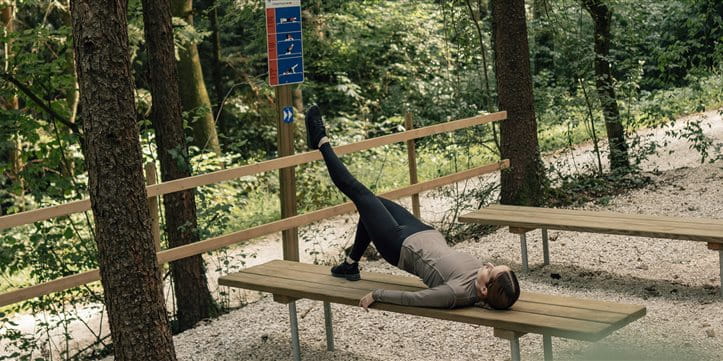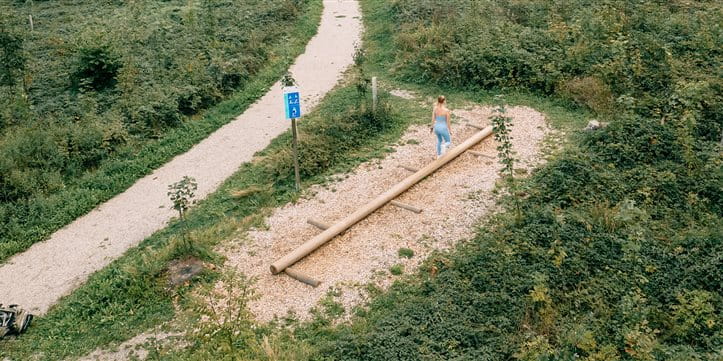According to the LAI statistics for 2023, one in three leisure accidents occurs during sport and play, and for men, sport is in fact the most common cause of accidents. Ball sports, such as football, tennis and volleyball, as well as winter sports are particularly likely to cause accidents, but the figures are also rising slightly for mountain sports too. The most common injuries are dislocations, sprains and strains.
Elite athletes in particular need to protect themselves against accidents, because injuries often result in breaks in training and can even ruin an entire season. Sports professionals therefore attach great importance to accident prevention.
Zurich Switzerland is an attractive employer for active and former top athletes, two of whom share their most important tips for prevention. These are equally valid for people who only do sports now and again:

Here are Laura's five prevention tips:
- No training without a warm-up
Never start training or a competition without warming up – muscles must always be warmed up and activated to protect them from injury. Gentle jogging, jumping rope or climbing stairs are good ways to start. For ice skating, stretching before training is also essential, for example with "airplane pose" or a deep lunge. - Strengthen your muscles
Do regular strength exercises to strengthen your muscles. In figure skating, the focus is on strong leg muscles, as these are a prerequisite for high jumps and endurance. - Listen to your body
Listen to your own body – and to the doctors: If you are not completely fit, it is better to skip training or only practice simple skating elements. Otherwise there is a risk of strains or even stress fractures. - Incorporate breaks
Training-free days are also important for elite athletes to allow the body and mind to recover and ensure that motivation and enjoyment are maintained in the long term. - Quality over quantity
If a training session is shorter, but extremely focused and successful, then it may be more beneficial than a longer training session where you don't concentrate very well. This also includes knowing when to stop: Injuries are particularly common if you carry on despite being exhausted.

Here are Antoine's five prevention tips:
- Warm up with dynamic exercises
Warm up well before training, e.g. with a few dynamic exercises such as skipping. - Don't forget to eat
Eating before and after training is particularly important for endurance sports like triathlons to ensure you have enough energy. For me it's porridge or a piece of bread before training and a protein bar after training. - Strength exercises as protection
I protect myself preventively by doing strength exercises to make my muscles stronger and thus prevent muscle fiber tears or torn ligaments, for example. As a triathlete, I focus on my knees and Achilles tendons – for example with split squats, calf raises or "normal" squats with weights. - Massage for well-being
I go for a massage every week to prevent stiffness. - Always sleep well
I make sure that I get enough sleep – and that I get high-quality sleep. That's why I switch my cell phone to flight mode before going to bed so that I'm not disturbed by notifications. Why is sleep so important? Exercising while overtired makes it harder to concentrate, making falls more likely.
And his bonus tip for anyone who wants to start exercising again after a long break: "I would recommend meeting up with a friend for training at the beginning so that you can motivate each other."





